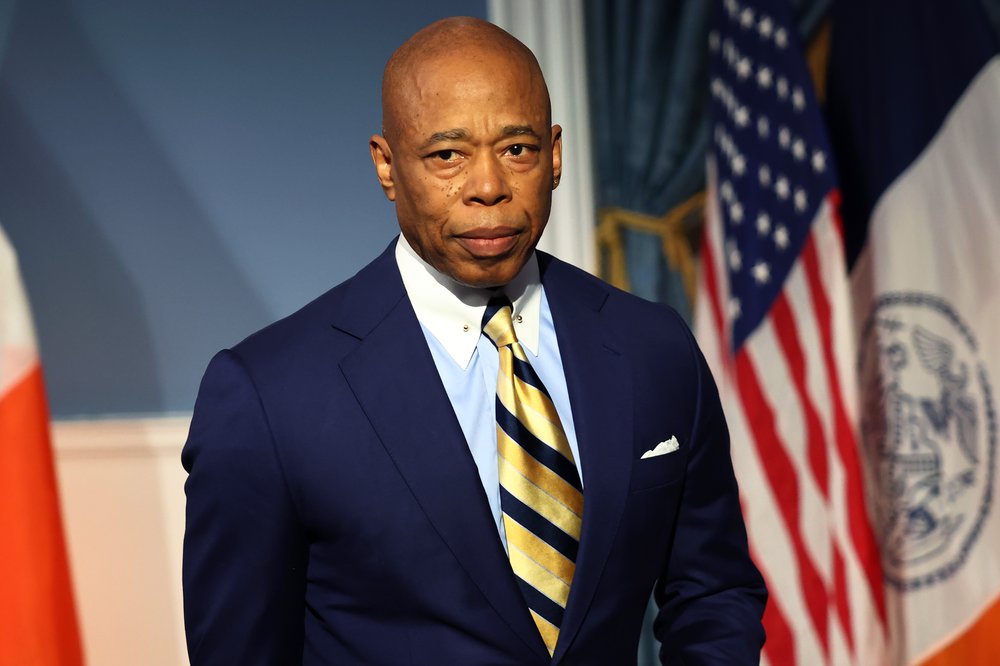Adams administration must expand city-funded rental subsidies, appeals court says
July 10, 2025, 12:53 p.m.
The decision reverses a lower-court ruling, requiring New York City to implement a package of laws to expand rental vouchers.

A state appeals court ruled Thursday that New York City must implement a package of laws to expand access to rental subsidies for New Yorkers facing homelessness or eviction, dealing a blow to the Adams administration, which resisted the measures.
The ruling is a major win for the City Council and housing advocates who sued Mayor Eric Adams last year over his refusal to expand the program, known as CityFHEPS, which helps low-income residents pay their rent.
Tenants usually pay 30% of their income toward rent and the city covers the rest. About 52,000 households currently receive a voucher.
A panel of judges unanimously rejected the administration’s argument that legislation passed by the City Council to make more New Yorkers eligible for rental aid conflicted with state law. The ruling overturns a Manhattan Supreme Court’s earlier decision that sided with Adams.
It also affirms the City Council’s authority to legislate social service programs. The city argued that power effectively rested in the executive branch.
City Hall spokesperson Liz Garcia said the administration is helping an unprecedented number of New Yorkers move into permanent housing and is using CityFHEPS more than any other administration; the program will cost the city $1.2 billion this fiscal year, up from $253 million four years ago. Garcia said the city needed to focus on the 13,000 households that have vouchers but can’t find where to use them.
“Adding more vouchers will only make it harder for people to leave homeless shelters. The affordable-housing crisis won’t be solved by making people compete for nonexistent housing; it will be solved by building more housing — which the Adams administration has done at record levels — and actually connecting people who already have vouchers to homes,” she said.
Less than 1% of the city’s roughly 1 million rent-stabilized apartments are empty. The number of people who are living in city shelters and are not migrants is on the rise, as is the number of homeless people sleeping on the streets, according to official data.
Garcia added the city was reviewing its legal options.
“Today’s unanimous appellate decision is a critical moment for thousands of New Yorkers struggling with housing insecurity,” said Robert Desir, staff attorney at the nonprofit Legal Aid Society, which sued the city in a class-action suit on behalf of affected residents. “At a time when affordability remains one of the most pressing challenges in New York City, this decision marks a significant step toward a housing system that is accessible and fair for all.”
The ruling also cements the City Council’s power to legislate program requirements and rules for the city’s social services. The Adams administration contended the Council’s package of laws were invalid because the state empowered the Department of Social Services, not other legislative bodies like the City Council, to make those decisions.
But the appellate judges dismissed that argument as “absurd” and one that would “result in the reorientation of power.”
“This decision is heartening, we are seeing the courts rule on the side of legislators have a right to legislate,” said Councilmember Pierina Sánchez, who represents parts of the Bronx. She sponsored two of the expansion bills and chairs the Council's Committee on Housing and Buildings.
The City Council measures, which were passed in 2023, would make more New Yorkers eligible for housing vouchers at a time when affordability has become a key issue in the mayor’s race. Rents continue to surge while the number of vacant apartments remains staggering low.
The package of legislation reduces how much people with vouchers pay for utilities and no longer requires those applying for CityFHEPS to have lived in a shelter. It also prohibits the city Department of Social Services, which oversees the vouchers, from basing an applicant's eligibility based on whether they are employed or their source of income.
“It's just a major victory, a decisive victory for all New Yorkers who are facing housing instability, who can't make ends meet, and who want to live in our city, want to contribute to our city but need some assistance in doing that,” Sánchez said.
CityFHEPS vouchers have ballooned in popularity and become the main lifeline for people who can’t afford to pay rent amid decades of state and federal disinvestment in subsidized housing. It’s the largest municipally funded housing voucher program in the country, city officials say.
“This changed my life,” said Calvin Michael, 58, who received a voucher three years ago after being homeless.
Michael, a member of the Safety Net Activists, said he knows how much people need help.
“Being disabled, I was able to leave the shelter, come into an apartment. It was a huge improvement in my quality of life.”
The Legal Aid Society is calling for Adams to quickly ask the state to approve the expansion of subsidies, which the group called "the first step" to prevent more New Yorkers from getting evicted.
Number of street homeless New Yorkers rises as city braces for federal funding cuts YIMBYs win, ‘Freeze the Rent’ and other ways housing is shaping NYC’s mayoral race